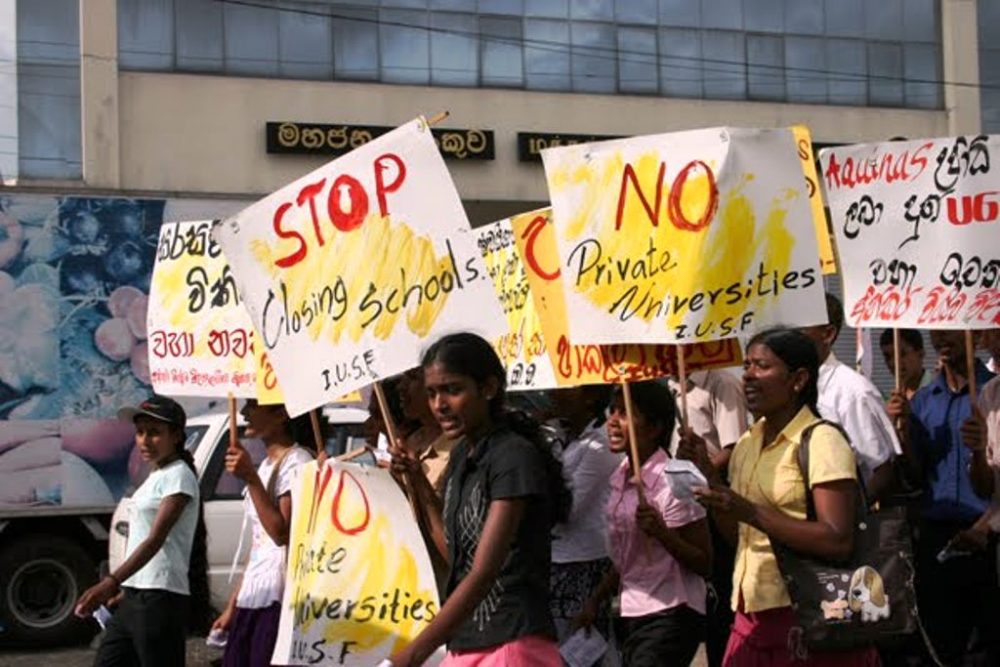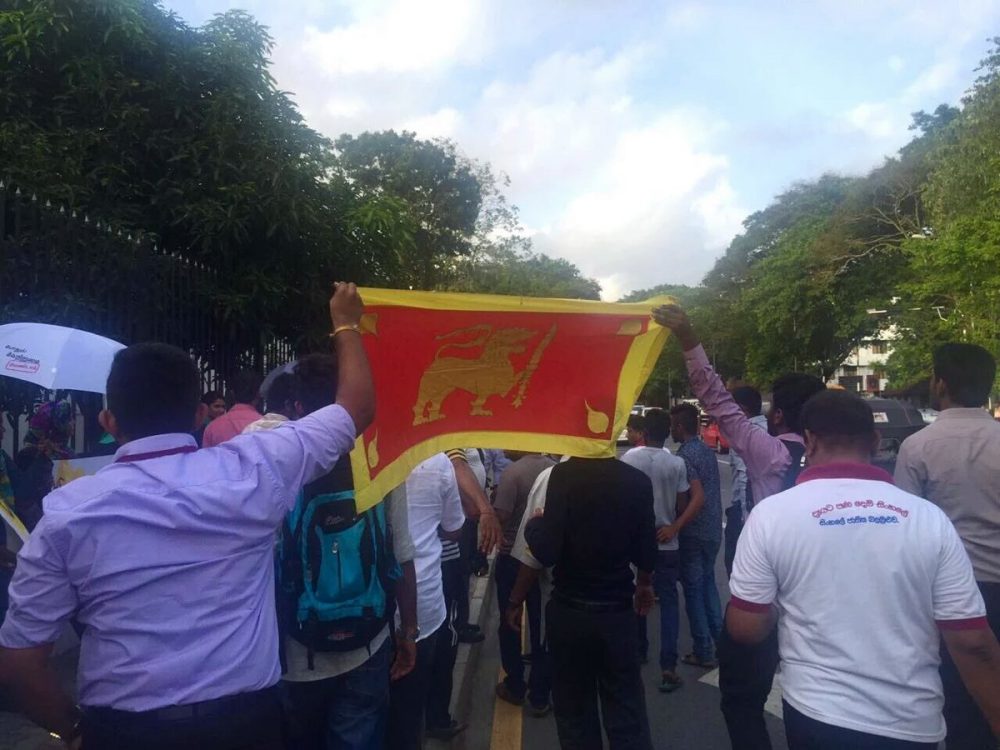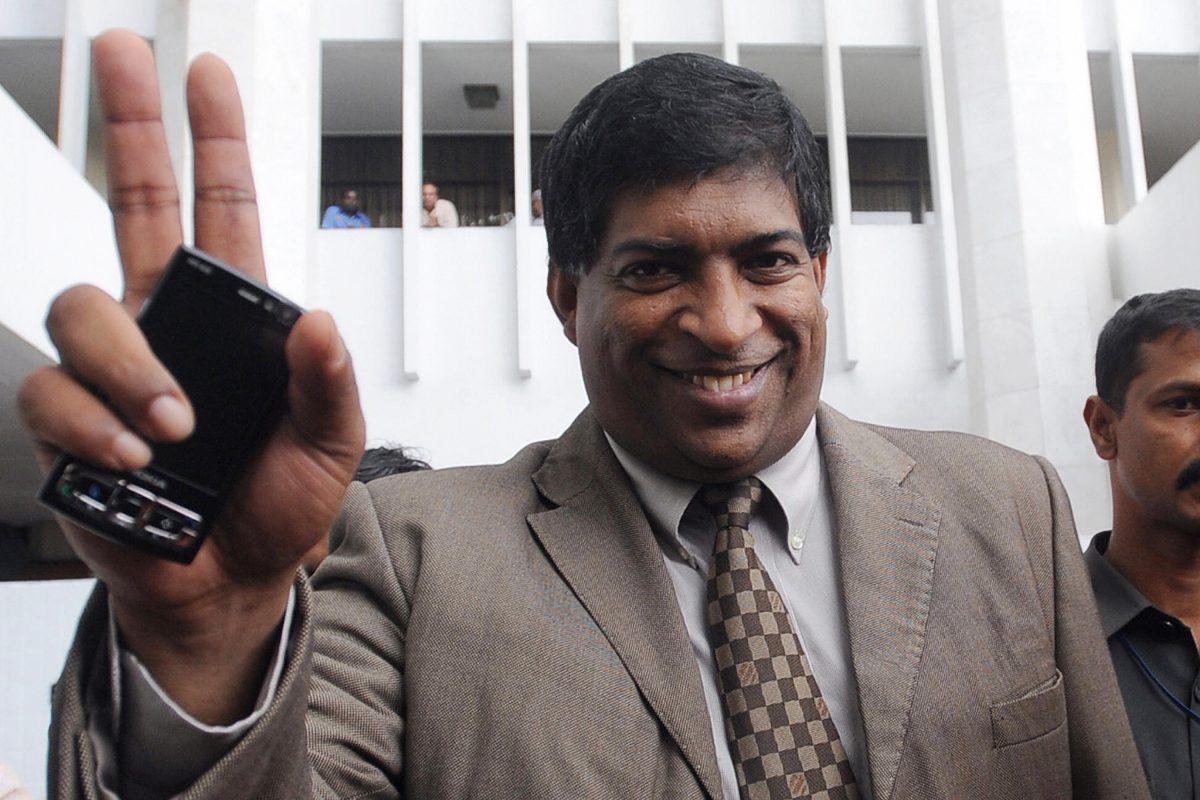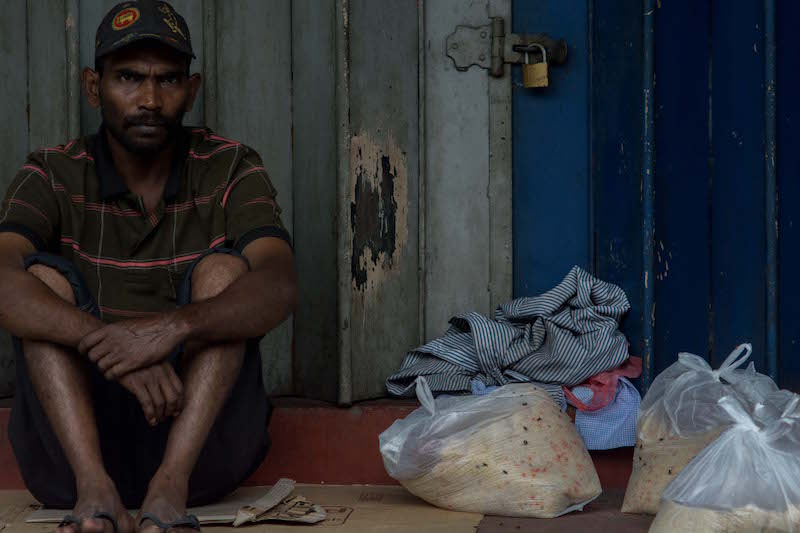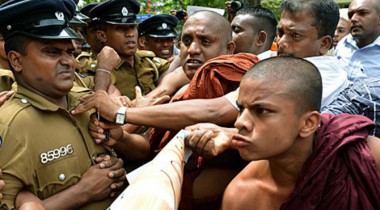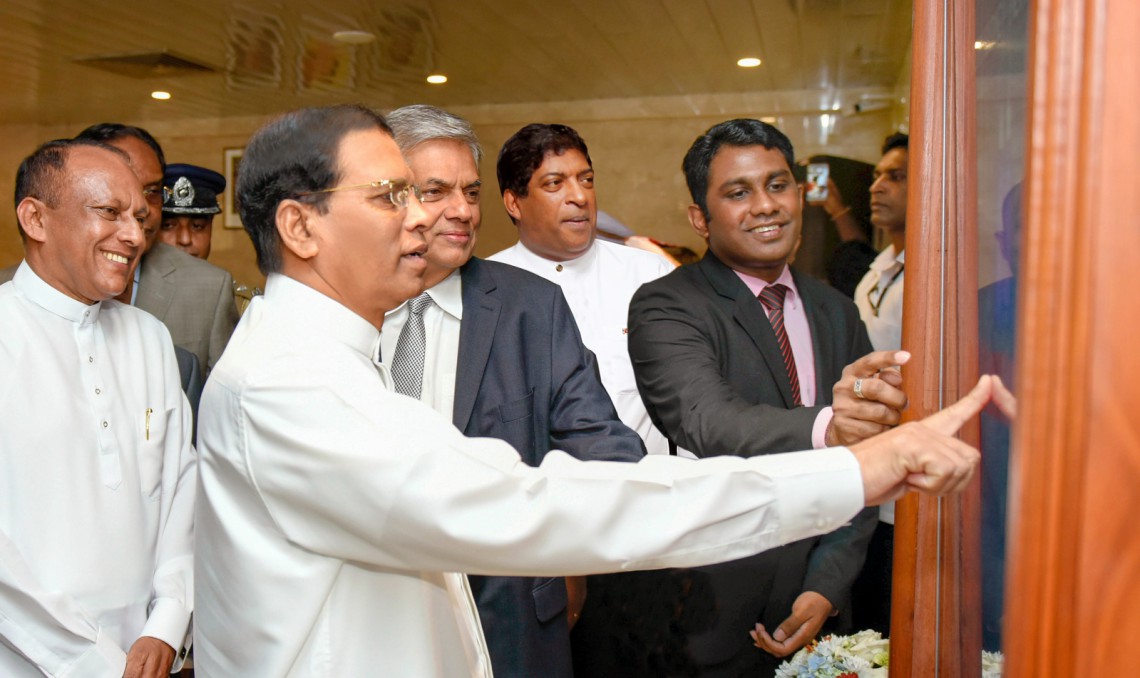
As 2016 comes to a close, it’s not hard to imagine that a lot of people will be muttering “good riddance” under their breath, all too happy to see the back of a year that’s been grievously unkind in many respects, both locally and globally. Even where there was no damage of any real significance, we can all agree that it’s been a pretty underwhelming, lacklustre year all round. And politics and governance in the paradise isle is no exception. If this year can be described in one word ‒ at least where Sri Lanka is concerned ‒ it’s “meh.” But is that necessarily a bad thing?
The Dud That Is Yahapalanaya?
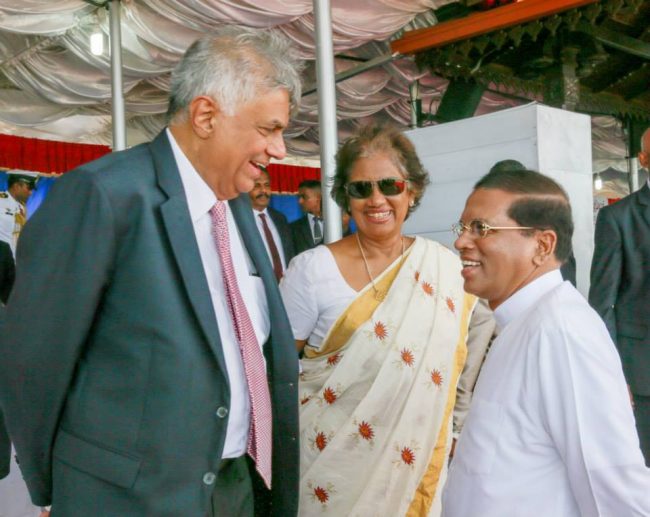
The Yahapalana government may have flown in on a happy wave of hope, but this is now fading into the distance
There is a pithy saying in Sinhala that goes “හරියට වැටකොළු වගේ; රහත් නෑ, ගුණත් නෑ.” The meaning is bound to be lost in translation, so there is no point even trying. Suffice to say that it alludes to a decidedly unremarkable thing that is neither interesting nor particularly useful. It’s not a stretch to say that, with its second anniversary fast approaching, that is exactly how a growing number of people feel about the so-called Unity Government: That, for all its promises of good governance, economic prosperity, and social equity, this administration has so far been rather bland, uninspiring, and remarkably unremarkable (with a touch of corruption and abuse of power on the side just to keep things exciting, but hey, which government hasn’t been guilty of that?). Of course, pro-Mahinda detractors have never had anything good to say about the Ranil-Maithree combo, but the increasingly disillusioned voters and civil society activists who worked tirelessly to bring this government into power are losing faith faster than you can say FCID. And that’s not good. There is an election coming.
It’s Not All Bad, However (Or Is It?)
In fairness, Sri Lanka did make some objectively significant strides on various fronts over the past 12 months under the watchful eye of Yahapalanaya. This government can take credit for, among other things, getting the long overdue Right to Information (RTI) Bill passed in Parliament, setting the stage for a new constitution, improved foreign relations, recommencing the Port City project despite initial hiccups, drawing up plans for a complete restructuring of public transport and doing its best to save Hambantota and the rest of the country from a looming, potentially crippling debt trap.
Where the Yahapalana Government floundered ‒ and floundered hard ‒ was with regard to its hypocritical conduct vis-à-vis corruption, particularly in relation to the Central Bank Bond scam, with the Premier himself appearing to bend over backwards to protect those accused in what is widely considered the biggest financial scandal in the country’s history. And that’s not the last of it. Allegations of nepotism, of stifling media freedom, and of turning a blind eye to growing communalism have been made on occasion, tarnishing the squeaky clean image the Colombo-centric powers-that-be try so hard to maintain, providing ample fodder to the other side whose very survival depends on blunders made by the ruling party. Fortunately for the Opposition, the blunders just don’t seem to stop.
Money Matters
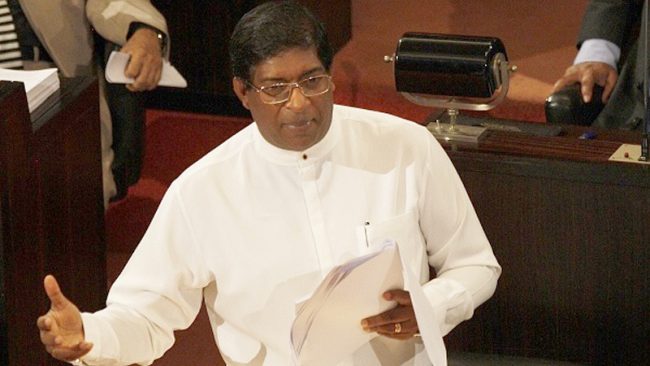
Despite the government’s attempts to present a seemingly ‘progressive’ budget, Budget 2017 has come under criticism from left-leaning economists
Then there were the economic woes. Despite the Government’s best efforts (and best intentions, one is certain) the decision to increase direct taxes such as the universally loathed value added tax (VAT) has been met with utter disdain. Budget 2017, while lauded by some as progressive and effective, particularly with regard to a proposed increase in capital gains tax and other direct taxes, has been heavily criticised by left-leaning economists for what they call its unfair and unjust austerity measures. The Government’s economic vision for 2017, these critics argue, will add to the burdens of an already beleaguered people, calling into question the many proposed reductions in government expenditure.
Proponents, however, have praised the Government for its capacity to manage the economy in the face of mounting setbacks and its willingness to work with the private sector by allowing private participation in state enterprises. The UNP-led government’s investor-friendly disposition and neoliberal economic policies, they believe, are conducive to a spike in growth over the next few years, and progress, they predict (provided there is stability) is inevitable.
All Publicity Is Bad Publicity
One of the biggest issues with this government, much to the chagrin of its supporters, has been its frustrating inability to communicate. Anyone who isn’t a complete slave to the Mahinda Chinthanaya can see that the Yahapalana Government, its tragic flaws notwithstanding, has made some noteworthy achievements ‒ albeit few in number ‒ over the past two years, particularly in areas of democracy and rule of law. But you would be hard pressed to find an ‘average voter’™ who knows or even cares about it ‒ not because he or she is an uninformed idiot, but because the people running the show just don’t seem to know how to get the message across. Say what you will about the previous administration, but it had the uncanny ability to sell anything to the masses ‒ this was a regime that almost convinced a nation that there is nothing weird at all about its president running for an unlimited number of terms. And now we have a government struggling to educate the masses on why they need RTI. Meanwhile, the Joint Opposition, even without the state machinery at its disposal, is doing a fine job of discrediting the government at every available opportunity. It would be funny if it wasn’t so embarrassing.
Conclusion
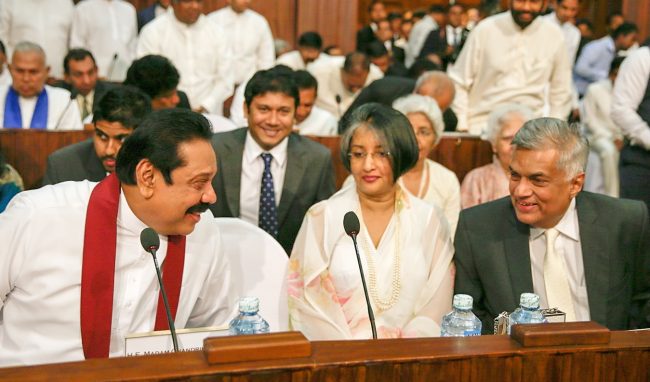
Former President Mahinda Rajapaksa has reportedly said he plans to ‘topple’ the current government in 2017
All things considered, it’s been a rather uneventful year for the National Unity Government. But growing resentment in some sections of society, particularly those neglected by the ruling elite, ably exploited by destructive chauvinistic forces, could spell doom for the increasingly precarious UNP-SLFP coalition over the next few years. The Joint Opposition is only too happy to capitalise on the widening rift between the two main constituent parties as well as divisions within the SLFP itself. Former President Mahinda Rajapaksa told the Hindu recently that he plans to topple the Unity government as early as 2017 (even though the Constitution guarantees its safety for the next three years) and expressed his willingness to serve as Prime Minister under a Sirisena presidency. Even if such a scenario doesn’t come to pass, the people’s growing dissatisfaction with the Yahapalana government means that the next election is going to be far from the cakewalk it was two years ago. The sooner it gets its act together, the better for all parties – political and otherwise – involved.
Here’s wishing everyone a happy 2017.
Featured image credit president.gov.lk


